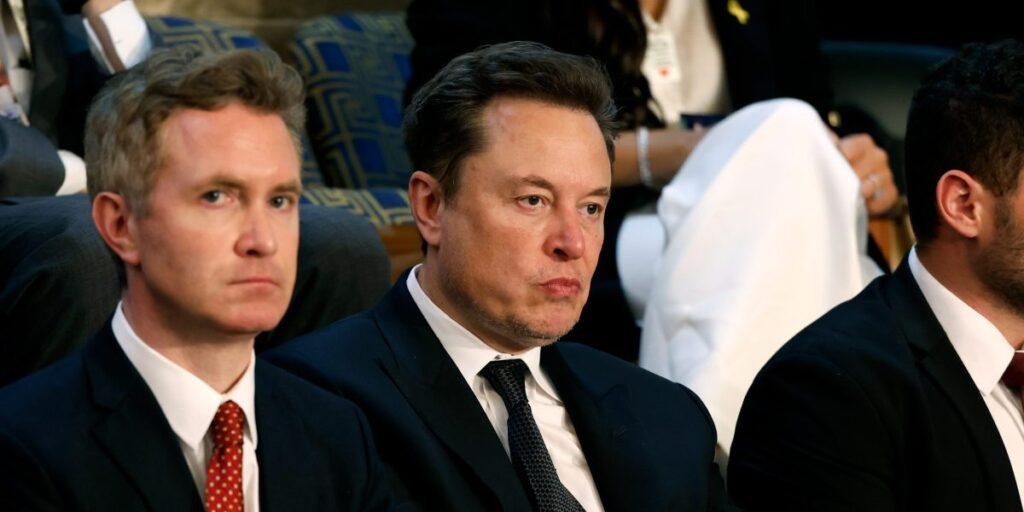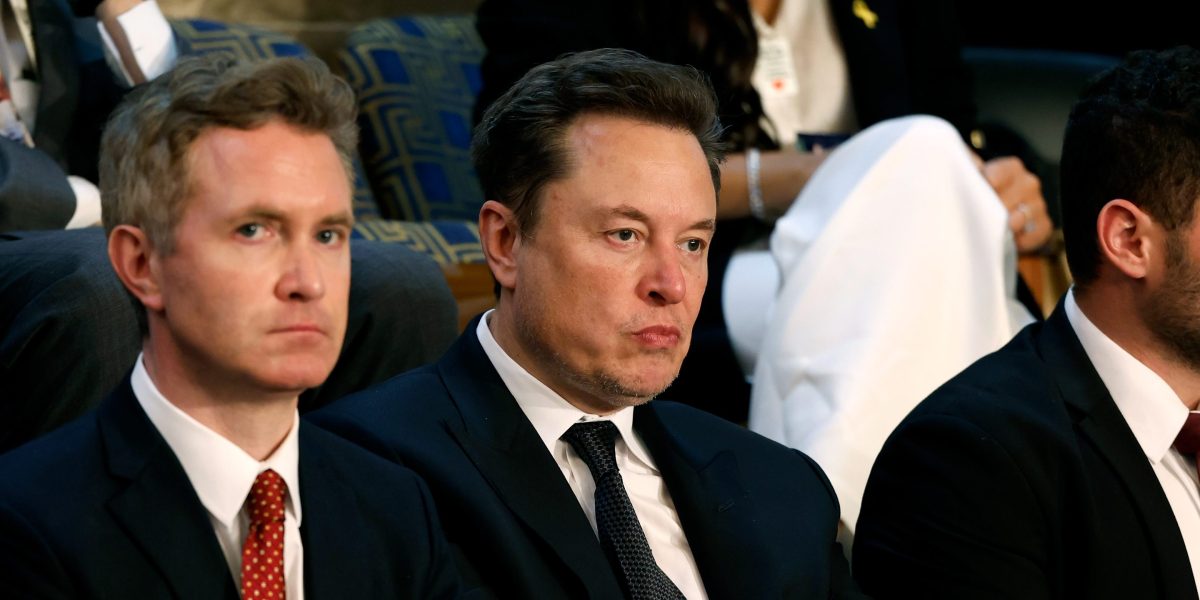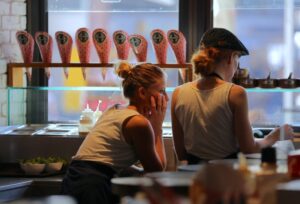Elon Musk’s outspoken riot comments prompt U.K. to seek tougher social media rules
“Musk appears to be deliberately thumbing his nose at any sense he’s held accountable.”


Keir Starmer called for a “mature conversation” with social media companies to limit malicious content that’s stoked days of rioting in the UK. Instead, he found himself in an escalating online confrontation with Elon Musk, the billionaire owner of X.
Now, the UK is mulling steps to tighten the regulation of platforms like Musk’s — and finding it has few levers, especially when the owner is a major amplifier of misinformation. One step would be to revive a key provision in the Online Safety Act, set to be implemented later this year, giving authorities more power to force social media companies to curb harmful content, according to people familiar with the situation.
“Very swiftly the government has realised there needs to be amendments to the Online Safety Act,” London Mayor Sadiq Khan told the Guardian newspaper. “I think what the government should do very quickly is check if it is fit for purpose. I think it’s not fit for purpose.”
Musk’s enormous reach and influence has limited the government’s ability to force X to do more to limit racist content that has fueled violence on British streets in a dramatic illustration of the power global technology companies now wield. Starmer himself has avoided engaging directly online with the billionaire — and doesn’t plan to try privately either — for fear of getting into a war of words the government risks losing, the people said, asking for anonymity to discuss private matters.
Musk’s post claiming “civil war is inevitable” drew criticism from a Downing Street spokesman. But the prospect of direct intervention by the new UK prime minister raises fears of a public feud with Musk like the one Australian Premier Anthony Albanese waged with little success earlier this year.
Some British officials have hinted at the challenge they face in dealing with the outspoken billionaire.
“Don’t underestimate the impact that he can have, not just on public discourse, but on actual facts on the ground,” Technology Secretary Peter Kyle told the Times this week. “So, the relationship we have with some of these companies is much more akin to the negotiations with fellow secretaries of state in other countries, simply because of the scale and scope that they have.”
UK officials are discussing whether to revisit part of the Online Safety Act, according to the people familiar with the efforts. The bill was watered down by the last government, which removed language that would have regulated “legal but harmful” content in order to allay concerns of free speech campaigners. The legislation gives regulators the power to impose large fines and, in extreme cases, block social media platforms that don’t comply.
On Monday, Kyle’s office said he met with executives from Meta Platforms Inc., Alphabet Inc.’s Google, TikTok and X to discuss “the spread of hateful misinformation and incitement.”
After over 30 minutes, Musk appears to have finally deleted the post
No acknowledgement yet
This was my last screen-grab, which records just under 2 million views: pic.twitter.com/NcnNEgwtci
— Josh Self (@Josh_Self_) August 8, 2024
The next day, Musk compared the UK to the Soviet Union and accused Britain of “two-tier policing” — a conspiracy theory that has grown online that police forces treat Britons differently based on their politics. On Thursday, Musk shared a post by the co-leader of Britain First, a far-right party, that showed a falsified news article about the UK deporting those arrested in the riots. Musk later deleted his post.
And that’s not to mention the large amounts of racist content posted by other X users that UK officials say has helped fuel disturbances that have erupted in isolated pockets across the country, particularly in the north. Musk’s company has been among the least cooperative of major social media companies as authorities seek to get incendiary posts removed, the people said.
“Every other tech company would turn down the temperature in this situation, but Musk is cranking up the heat,” said Nu Wexler, the former head of policy communications at Twitter, X’s former name. “It might work in the US, but it’s risky in Europe where tech regulators are empowered and platforms have fewer protections.”
X didn’t respond to a request for comment. Ofcom, the UK enforcement agency that oversees internet rules, released a post urging platforms to stop users from inciting violence but declined to comment further.
Starmer’s office declined to comment. The Department for Science, Innovation and Technology said its “immediate focus is working with the social media companies to tackle content that has contributed to the disorder of the past week” but confirmed that “there will be a longer-term debate to be had about the wider framework for tackling online harms.”
“Musk appears to be deliberately thumbing his nose at any sense he’s held accountable,” said Bruce Daisley, a former vice president for Twitter. “These people are operating as a renegade business beyond the local law.”
An expected night of rioting on Wednesday was averted by a heavy turnout by police and thousands of anti-racism counter-protesters. Starmer said on Thursday that authorities would maintain their crackdown on far-right violence.
In the first days of the disturbances, triggered after false online claims that a Muslim asylum-seeker was responsible for the brutal murder of three girls in Southport on July 29, the prime minister appealed to social media companies to intervene.
“Let me also say to large social media companies, and those who run them, violent disorder clearly whipped up online: that is also a crime. It’s happening on your premises, and the law must be upheld everywhere,” Starmer said at a news conference, calling for “a mature conversation to take place.”
Musk has increasingly wielded his influence to forge relations with senior politicians — including former UK Premier Rishi Sunak who he interviewed while attending a summit on artificial intelligence last year. Most recently, he endorsed Donald Trump for US President. Trump announced this week that he will do an interview with Musk on Monday.
But Musk has also used his X platform to openly criticize governments.
Earlier this year, he accused Australia of censorship after it claimed X had failed to move fast enough to police graphic content and misinformation during two violent attacks in Sydney. Australia dropped a court case against the company in June, in a win for Musk, after months of back-and-forth between him and Albanese, who had called the entrepreneur “arrogant” and said he was choosing “ego and showing violence over common sense.”





